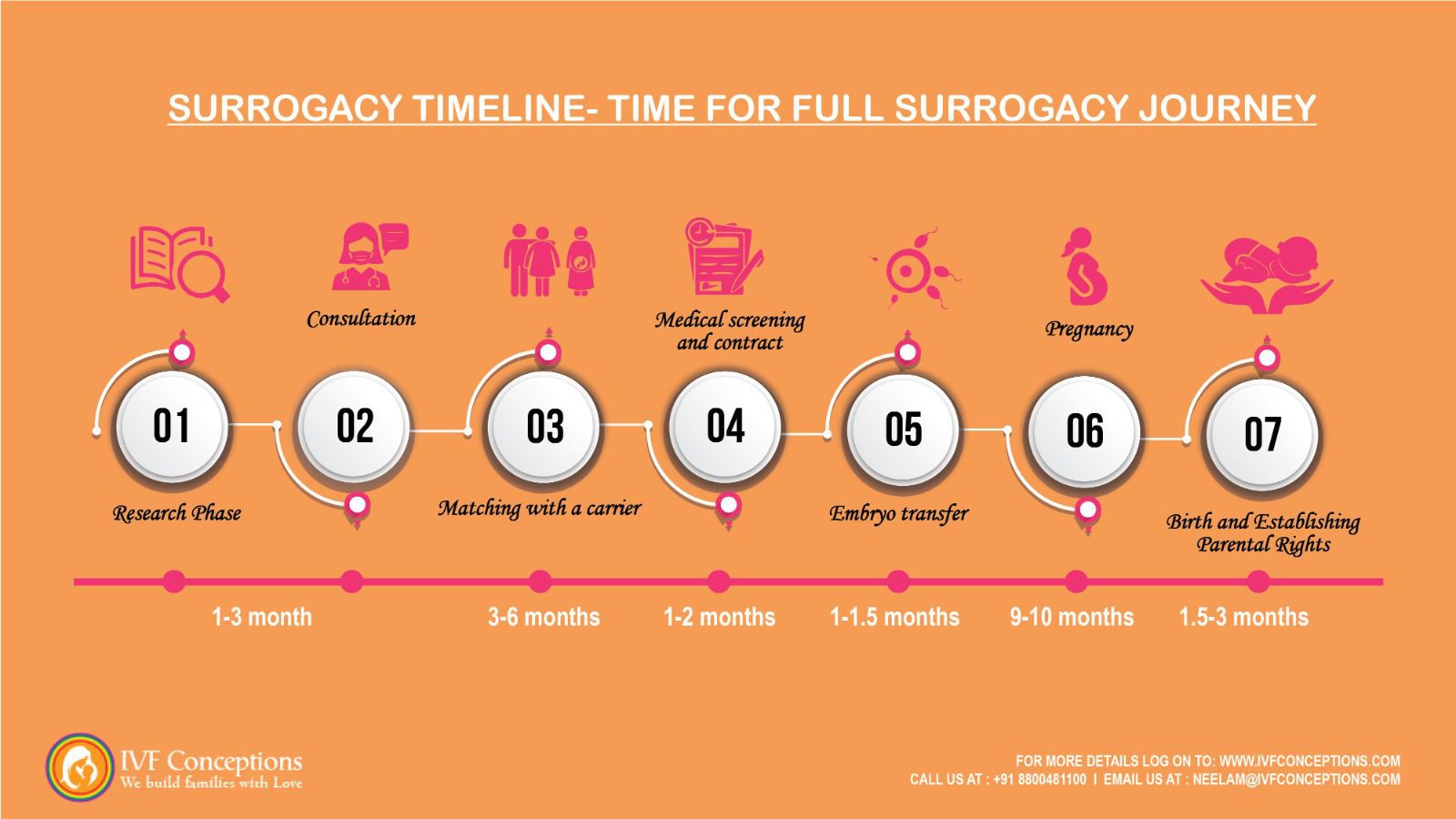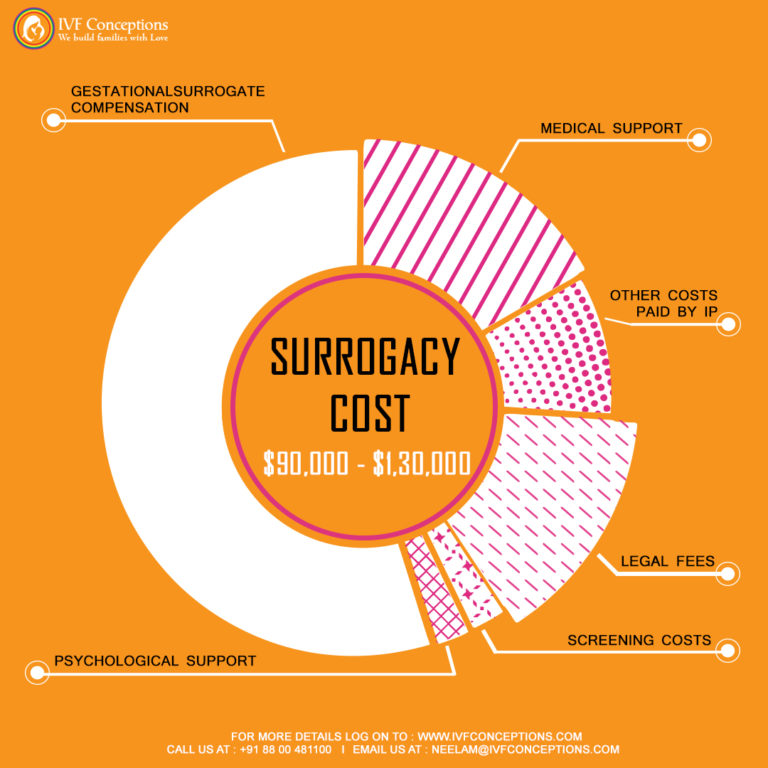Surrogacy With Your Own Eggs: A Comprehensive Guide

Surrogacy has become an increasingly popular option for individuals and couples struggling with fertility issues or who are unable to carry a pregnancy to full term. While traditional surrogacy involves using the surrogate’s own eggs, advancements in reproductive technology have made it possible for individuals to do surrogacy with their own eggs.
This method, known as “surrogacy with your own eggs” allows individuals to have a genetic connection to their child while still utilizing a surrogate to carry the pregnancy.
However, this option is not without its complexities and considerations. In this article, we will explore the process of surrogacy with your own eggs, including the legal, emotional, and financial implications involved. We will also discuss the potential benefits and challenges of this method, as well as important factors to consider before embarking on this journey.
By providing a comprehensive overview of this unique form of surrogacy, we aim to inform and educate those considering this option and shed light on the intricacies of surrogacy with your own eggs.
Begin your surrogacy journey with IVF Conceptions today!
Mobile: +91-8800481100 ( WhatsApp, Line, Viber)
Email: neelam@ivfconceptions.com
Additional Resources:
Everything You Need To Know (in 2023)
How Much Does Surrogacy Cost Using Family Member
Can My Insurance Provider Pay My Surrogacy Costs?
How Much Does Surrogacy Cost in the USA ( 2023)?
Surrogacy Costs Breakdown for Intended Parents

Understanding Gestational Surrogacy with Your Own Eggs
What Is Gestational Surrogacy?
Gestational surrogacy is an arrangement where a woman (the surrogate or gestational carrier) carries and delivers a baby for another person or couple (the intended parent(s)). In gestational surrogacy using your own eggs, the embryo is created using:
- Eggs from the intended mother or egg donor
- Sperm from the intended father or sperm donor
This differs from traditional surrogacy, where the surrogate’s own eggs are used. In gestational surrogacy, the surrogate has no genetic connection to the baby.
Who Might Consider This Option?
Gestational surrogacy with your own eggs may be appropriate for:
- Women with medical conditions that make pregnancy dangerous (such as severe heart disease or certain autoimmune disorders)
- Women who have had a hysterectomy but have functioning ovaries
- Women with a history of recurrent pregnancy loss or implantation failure
- Same-sex male couples using an egg donor
- Individuals for whom previous fertility treatments have been unsuccessful
According to the American Society for Reproductive Medicine (ASRM), surrogacy can be a safe and effective option for building a family when medical necessity is established and appropriate screening protocols are followed.

The Medical Process: Step-by-Step
1. Initial Consultation and Medical Screening
Before beginning the surrogacy journey, you’ll undergo:
- Comprehensive fertility evaluation
- Testing for infectious diseases
- Genetic carrier screening
- Psychological evaluation
- Medical history review
- Uterine assessment (if applicable)
Research published in Fertility and Sterility (2023) indicates that thorough pre-treatment screening significantly improves success rates and reduces complications.
2. Egg Retrieval Process
The process for retrieving your eggs follows standard IVF protocols:
Ovarian Stimulation (10-12 days)
- Daily hormone injections to stimulate multiple egg development
- Regular monitoring via ultrasound and blood tests
- Medication adjustments based on your response
Trigger Shot
- Precisely timed injection to finalize egg maturation
- Typically administered 36 hours before egg retrieval
Egg Retrieval Procedure (15-30 minutes)
- Performed under light sedation
- Transvaginal ultrasound-guided needle aspiration
- Usually yields 8-15 eggs depending on age and ovarian reserve
- Same-day recovery with minimal discomfort
A 2024 study in the Journal of Assisted Reproduction and Genetics found that personalized stimulation protocols significantly improve egg yield and quality in surrogacy arrangements.
3. Embryo Creation and Testing
Fertilization
- Eggs are fertilized with sperm using conventional IVF or ICSI
- Embryos are cultured in the laboratory for 5-7 days
Preimplantation Genetic Testing (Optional but Recommended)
- PGT-A: Screens embryos for chromosomal abnormalities
- PGT-M: Tests for specific inherited genetic disorders
- Typically performed on day 5-7 embryos (blastocysts)
- Results available within 7-14 days
Embryo Freezing
- Viable embryos are cryopreserved using vitrification
- Success rates with frozen embryos are equivalent to fresh transfers
- Allows synchronization with the surrogate’s cycle
4. Surrogate Preparation
While your eggs are being retrieved and embryos created, your surrogate will undergo:
- Medical screening and clearance
- Psychological evaluation
- Cycle synchronization (if using a fresh transfer)
- Endometrial preparation with hormones
5. Embryo Transfer to Surrogate
Medication Protocol (2-3 weeks)
- Estrogen supplementation to build endometrial lining
- Progesterone to prepare the uterus for implantation
- Continued hormone support after transfer
Transfer Procedure (5-10 minutes)
- Quick, painless procedure similar to a Pap smear
- Embryo(s) placed in uterus using ultrasound guidance
- No anesthesia required
- Brief rest period following the procedure
Post-Transfer Monitoring
- Beta-hCG blood test 10-12 days after transfer
- Ultrasound at 6-7 weeks to confirm heartbeat
- Regular prenatal care throughout pregnancy
Understanding Surrogacy with Own Eggs
Surrogacy with one’s own eggs offers a solution for individuals who are unable to carry a pregnancy themselves, allowing them to have a biological connection with their child.
The process involves several key components. Firstly, the concept of surrogacy with own eggs entails the intended mother’s eggs being retrieved through in vitro fertilization (IVF). These eggs are then fertilized with the intended father’s sperm or donor sperm. After the creation of embryos, they are transferred to the surrogate’s uterus for gestation.
Success Rates and Statistics
Success rates for gestational surrogacy using your own eggs depend on several factors:
Key Factors Affecting Success
- Age of the egg provider: The most significant factor
- Embryo quality: Graded based on morphology and development
- Genetic testing: Improves selection of viable embryos
- Surrogate’s uterine health: Affects implantation rates
- Clinic experience: Centers with surrogacy expertise report higher success rates
Statistical Overview
Based on the latest data from the Society for Assisted Reproductive Technology (SART):
| Age of Egg Provider | Live Birth Rate Per Transfer |
|---|---|
| Under 35 | 65-70% |
| 35-37 | 55-60% |
| 38-40 | 40-45% |
| 41-42 | 20-30% |
| Over 42 | 5-15% |
Note: These are generalized rates. Individual clinics may report different success rates based on their specific patient population and protocols.
Legal and Ethical Considerations
Legal Framework
Surrogacy laws vary significantly by location:
- Surrogacy-friendly states (e.g., California, Nevada, Maine): Have established legal processes for recognizing intended parents
- States with restrictions (e.g., New York, Washington): May have specific requirements or limitations
- States with prohibitions (e.g., Michigan, Nebraska): May restrict compensated surrogacy
Working with an attorney specializing in reproductive law is essential. They will help with:
- Surrogate agreements
- Establishing parental rights
- Insurance coverage issues
- Birth certificate procedures
- International considerations if applicable
Ethical Screening and Counseling
The American Society for Reproductive Medicine emphasizes the importance of:
- Independent legal representation for all parties
- Psychological evaluation and counseling
- Informed consent processes
- Clear financial arrangements
- Contingency planning
Surrogacy costs resources worldwide:
Top 4 cheapest countries for surrogacy
Best Countries for Surrogacy 2023- Top International Destinations
Risks of international surrogacy
Global International Surrogacy Options
Surrogacy In Mexico-Everything Intended Parents Need To Know
Cheapest Country For Gay Surrogacy- Colombia
Low-cost surrogate mother in Argentina

Cost for Surrogacy with Own Eggs
The cost associated with surrogacy with one’s own eggs varies from $40,000 to $50,000 based on the surrogacy country. This encompasses various factors that should be carefully considered.
A breakdown of the expenses provides a clearer understanding of the financial commitment involved.
Gestational surrogacy with your own eggs involves several cost components:
Typical Surrogacy Cost Breakdown
| Component | Approximate Cost Range |
|---|---|
| IVF & Egg Retrieval | $12,000-$20,000 |
| Surrogate Compensation | $30,000-$60,000 |
| Agency Fees (if used) | $15,000-$30,000 |
| Legal Fees | $7,000-$15,000 |
| Insurance | $15,000-$30,000 |
| Medication | $3,000-$7,000 |
| Miscellaneous Expenses | $5,000-$10,000 |
| Total Estimated Cost | $80,000-$150,000+ |
Financing Options
- Fertility-specific loans
- Healthcare credit options
- Grants and financial assistance programs
- Employer benefits (increasingly common)
- Crowdfunding platforms
Always discuss detailed cost breakdowns with your clinic and agency before beginning the process.

Emotional and Psychological Aspects
For Intended Parents
The emotional journey of surrogacy can include:
- Processing grief about not carrying a pregnancy
- Managing anxiety throughout the surrogate’s pregnancy
- Navigating relationship dynamics with the surrogate
- Preparing for parenthood in a unique context
For Surrogates
Surrogates typically experience:
- Strong altruistic motivation
- Attachment to intended parents, not the baby
- Emotional satisfaction in helping create a family
- Need for support from family and professionals
Support Resources
We strongly recommend:
- Specialized counseling before, during, and after the surrogacy journey
- Support groups for intended parents and surrogates
- Open communication between all parties
- Clear boundaries and expectations
A 2022 study in the Journal of Psychosomatic Obstetrics & Gynecology found that intended parents who participated in specialized counseling reported significantly better emotional outcomes throughout the surrogacy process.
Choosing Your Surrogacy Team/ Choosing Best surrogacy agency
Fertility Clinic Selection
Look for clinics with:
- Specific experience with surrogacy cases
- Strong success rates with similar cases
- Comprehensive screening protocols
- Clear communication practices
Surrogate Matching
Whether through an agency or independently, surrogates should have:
- Previous successful pregnancy experience
- Strong support system
- Stable life circumstances
- Alignment with your values and expectations
- Clear motivations for becoming a surrogate
Agency Considerations
If using a surrogacy agency, evaluate:
- Years in operation and number of completed journeys
- Screening processes for surrogates
- Support services throughout the process
- Transparency in fee structures
- References from previous clients
Timeline Expectations
A typical surrogacy journey with your own eggs takes approximately 15-24 months:
- Initial consultation to surrogate matching: 3-6 months
- Legal contracts and screening: 1-2 months
- Egg retrieval and embryo creation: 1-2 months
- Surrogate preparation and embryo transfer: 1-2 months
- Pregnancy and delivery: 9 months
- Post-birth legal procedures: 0-3 months
| Step | Description | Duration/Timeframe |
| Research Surrogacy | Learn about surrogacy and its benefits. | Varies based on individual readiness and research. |
| Plan for a Surrogacy Journey | Understand your starting point, set expectations, and create a custom roadmap. | Varies based on individual preparation. |
| Match With A Surrogate | Retain ConceiveAbilities to recruit and match you with a surrogate. | Varies based on surrogate availability. |
| Begin Pregnancy | Surrogate undergoes medical clearance and embryo transfer takes place. | Time needed for medical procedures. |
| Prepare for Your Baby’s Arrival | Surrogate’s obstetrician takes over medical care, and a birth plan is created. | During the middle of surrogate’s pregnancy. |
| Conclude Your Surrogacy Journey | Support for the surrogate post-pregnancy, settling financial matters, and considering future journeys. | Post-pregnancy period and individual decisions. |
[/vc_column_text]
 Conclusion
Conclusion
In conclusion, surrogacy with one’s own eggs is a complex and highly regulated process that requires careful consideration and professional guidance.
Throughout this blog post, we have discussed the various stages involved, including initial consultations, ovarian stimulation, egg retrieval, embryo creation, transfer, and pregnancy.
Next Steps: Beginning Your Surrogacy Journey
- Schedule a consultation with a reproductive endocrinologist experienced in surrogacy
- Research surrogacy laws in your state and potential surrogate’s state
- Connect with a reproductive attorney to understand legal requirements
- Explore financing options if needed
- Begin surrogate matching process through agency or independent networking
- Prepare medical and psychological evaluations for all parties
Resources and Support
- RESOLVE: The National Infertility Association – Support groups and resources (www.resolve.org)
- American Society for Reproductive Medicine – Medical guidelines and clinic finder (www.asrm.org)
- Men Having Babies – Resources for male couples pursuing surrogacy (www.menhavingbabies.org)
- Society for Ethics in Egg Donation and Surrogacy (SEEDS) – Ethical guidelines (www.seedsethics.org)
Our Clinic’s Approach to Surrogacy
At IVF Conceptions, we provide:
- Personalized care coordination throughout your journey
- Partnership with established surrogacy agencies
- Comprehensive psychological support services
- Transparent cost structure and financial counseling
- Extensive experience with complex surrogacy arrangements
[Insert specific success rates, specializations, or unique approaches your clinic offers]
If you’d like to learn more about IVF, Egg Donation, or surrogacy services globally, check out the rest of our website at IVF Conceptions. We offer legally secure and affordable surrogacy consulting services for FREE.
Begin your surrogacy journey with IVF Conceptions today!
Mobile: +91-8800481100 ( WhatsApp, Line, Viber)
Email: neelam@ivfconceptions.com
Frequently Asked Questions
Q: Will using my eggs guarantee the baby will be genetically related to me?
A: Yes. When using your eggs, you will be the genetic mother of the child, regardless of who carries the pregnancy.
Q: What if I’m older or have diminished ovarian reserve?
A: Success rates decrease with age, but personalized protocols can maximize your chances. Some women may consider egg donation as an alternative.
Q: How involved will I be in the surrogate’s pregnancy?
A: This varies based on your agreement with the surrogate. Most intended parents attend key appointments and maintain regular communication throughout the pregnancy.
Q: What if the surrogate has complications or miscarries?
A: Your surrogacy agreement should address these scenarios. Insurance typically covers medical complications, and emotional support is provided to all parties.
Q: Can I breastfeed my baby born through surrogacy?
A: Yes, induced lactation is possible through medication protocols and pumping regimens. Consult with a lactation specialist who has experience with surrogacy cases.
Reference used:

 Conclusion
Conclusion